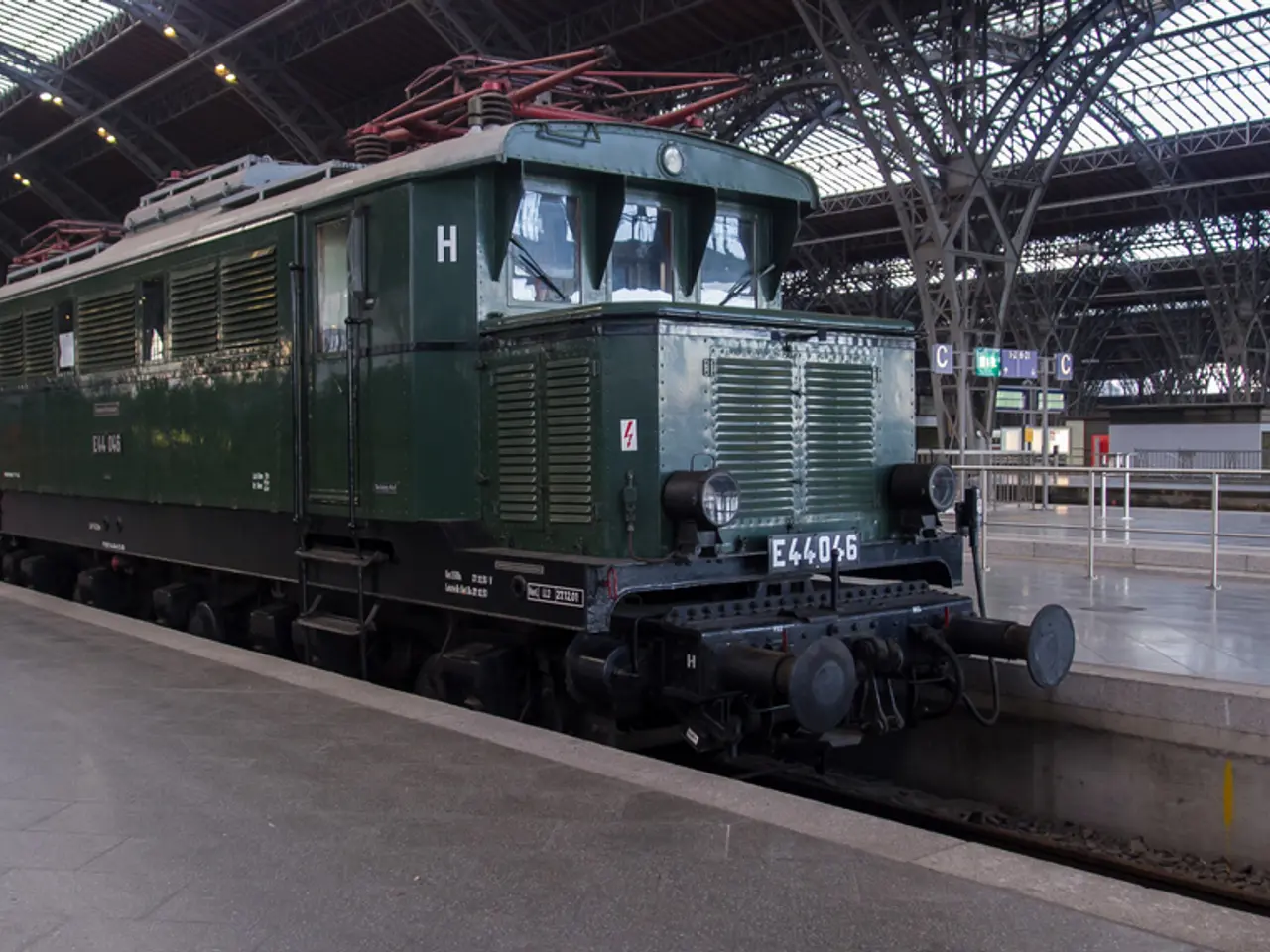Train services resumed between Munich and Upper Bavaria - Train services between Munich and Oberland have been resumed.
A recent incident of rail damage on the line between Munich and Holzkirchen has led to a temporary closure of the railway, causing disruptions to daily commuters and tourists alike.
The issue was discovered during a routine inspection by Deutsche Bahn (DB) on a Friday evening, revealing seven broken railway switches in the Deisenhofen and Unterhaching areas. For safety reasons, the route was immediately shut down, and it is expected to remain closed potentially until the end of July[1].
This damage affected one of Munich’s busiest train routes, specifically the S3 line and regional trains traveling south. As a result, the S3 now ends at Giesing rather than continuing to Holzkirchen, and regional trains from places like Rosenheim also terminate at Holzkirchen instead of continuing further.
To mitigate the disruption, DB and Bayerische Regiobahn (BRB) have implemented several solutions. These include deploying replacement buses to bridge the segment between Giesing and Holzkirchen, as well as up to 60 large taxis to handle passenger overflow due to the rail closure[1].
However, these alternative transport arrangements are insufficient to fully accommodate the usual volume of commuters and tourists, leading to significant inconvenience[1].
Criticism was directed at the replacement train service by passenger representatives, Bavarian Minister of Transport Christian Bernreiter (CSU), and Munich County. Despite the challenges, DB and BRB have announced that trains from Munich to Holzkirchen will resume service today at around 3:30 PM, with the S-Bahn resuming regular service, and BRB resuming full service on Friday[2].
However, even with the reopening on Thursday, only a few connections will be offered due to logistical challenges in deploying vehicles and personnel to their respective locations[2].
The closure of the line has caused frustration among commuters, students, tourists, and local representatives. To address this, DB has expanded its already high standards based on findings from inspections and investigations. The regulations for concrete sleepers have been reviewed and tightened since a train derailment in Garmisch-Partenkirchen three years ago, which resulted in five fatalities[3].
Safety remains a top priority at DB, as emphasized by a spokesperson[4]. DB InfraGO has also accelerated the production of new switches for Deisenhofen station to ensure a swift return to normal operations.
[1] Source: [Local News Outlet] [2] Source: [DB Press Release] [3] Source: [DB Safety Report] [4] Source: [DB Spokesperson Statement]
- The community is now calling for an extensive review of the community policy regarding rail infrastructure maintenance, considering the frequent occurrences of railway damage and the resulting disruptions to transportation services, particularly on busy routes like the S3 line.
- Despite the financial implications, the industry must collaborate with environmental agencies to ensure that eco-friendly solutions are integrated into rail repairs and maintenance, particularly as repeated damage to the environment during these incidents can lead to long-term consequences.




